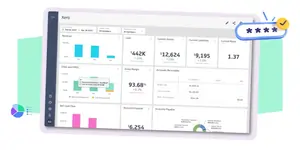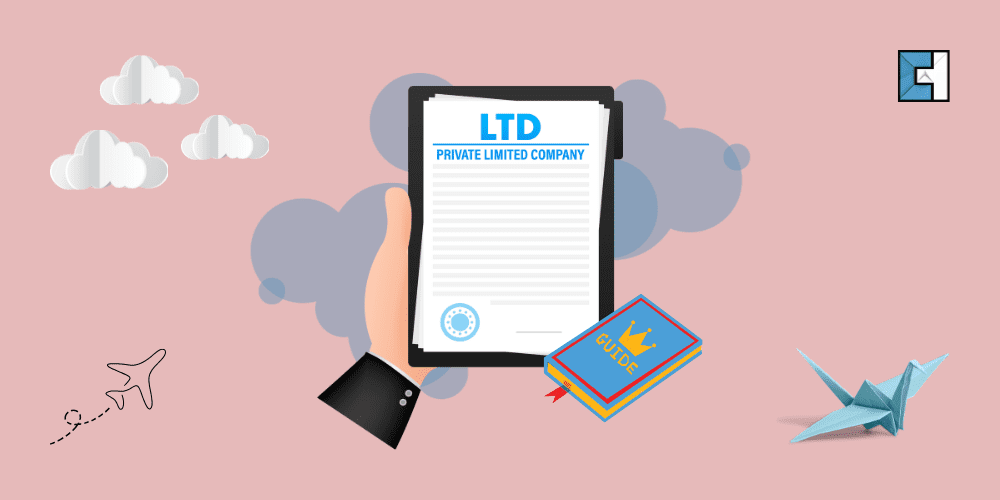Understanding how to start a business in the UK brings plenty of attractive opportunities for entrepreneurs, as the country has a robust legal framework. The UK startup ecosystem is supported by schemes such as Innovate UK funding and SEIS/EIS schemes, providing wider access to global markets. Nevertheless, translating your business idea into reality requires several important considerations, such as a clear understanding of what a business entails, the various types of businesses, and which type is most compatible with your goals.
This guide has been written collaboratively with expert startup accountants and formation specialists to provide you with all the crucial steps involved in starting a business in the UK.
Understanding the Steps Involved in Setting Up a Business in the UK
The trend of being self-employed is increasing at an astonishing pace in the UK. No matter if you want to open a product-based or service-based business, you must follow these steps to start your own business in the UK:
Assess the Viability of Your Business Idea
Just as a tree cannot grow without first planting the seed, having a clear business idea is essential for it to reach fruition later when starting a new business. Your idea might be based on an existing business model and industry, or you can create a unique business idea. Moreover, if others are already pursuing your business idea, you must analyse market trends and competitors to understand their approach and how you can outsmart them. Lastly, it is wise to remember that speed, quality, delivery, and X factor are the elements that can outdo and surpass your product or service in the market. Hence, be sure to have a solid idea of them.
The following guides can help you land a striking business idea:
Choose the Right Business Model for Your Startup
The business idea you are deliberating might be based on existing business models, or you might feel more innovative and create a hybrid model based on the concept’s viability. There is a wide range of business models in the UK, with traditional consumer frameworks like B2B, B2C, and more advanced models ,such as subscription-based, SAAS, or others. It is important for you to align the business idea with the right business structure.
Identify the Business Industry
The UK economy is built on a diverse range of industries and business sectors, and each has its own regulatory landscape, making it essential for anyone to have a successful startup to understand the regulatory and tax complexities beforehand. Most common Industries in the UK are:
- Professional Services
- Healthcare & Life Sciences
- Technology
- Retail
- Construction & Property
- Hospitality
- Transport & Logistics
- Manufacturing
- Education
- Creative Industries
Assess Yourself: Are You Ready To Start a Business?
After you have assessed the viability of your business idea, it’s time to do some self-reflection. In most cases, setting up your own business in the UK can cost you more than you have budgeted for. Consequently, you must do much deliberation before starting up a business to ensure you encounter fewer impediments in the way.
In addition, you will need to evaluate your major strengths and weaknesses since these areas might incur additional expenses if you outsource expertise. Helpfully, our business idea validation checklist below can be a good starting point.
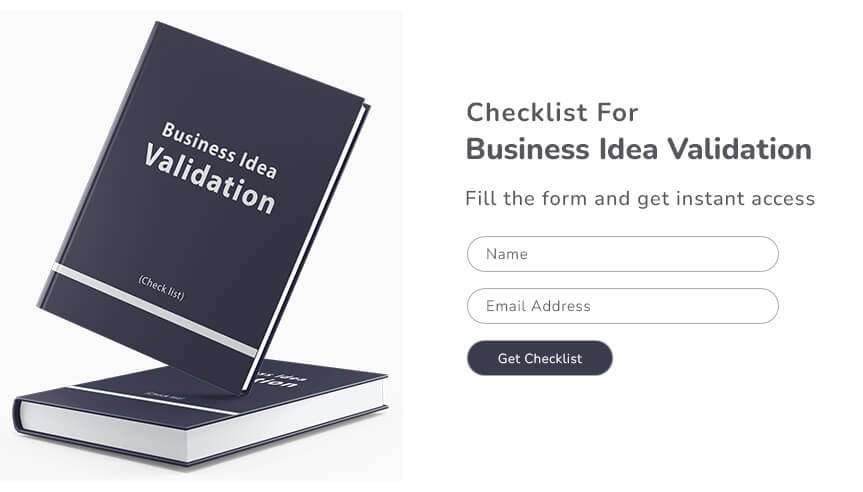
Conduct Market Research
After you have determined a business idea and assessed your readiness to open it, you must work on identifying potential customers for your product or service and for that, you must conduct market research. It is imperative to analyse consumer behaviour and the economic trends of the industry because they give you an insight into what products and services potential customers are interested in buying.
The following guide can help you understand how to perform market research effectively:
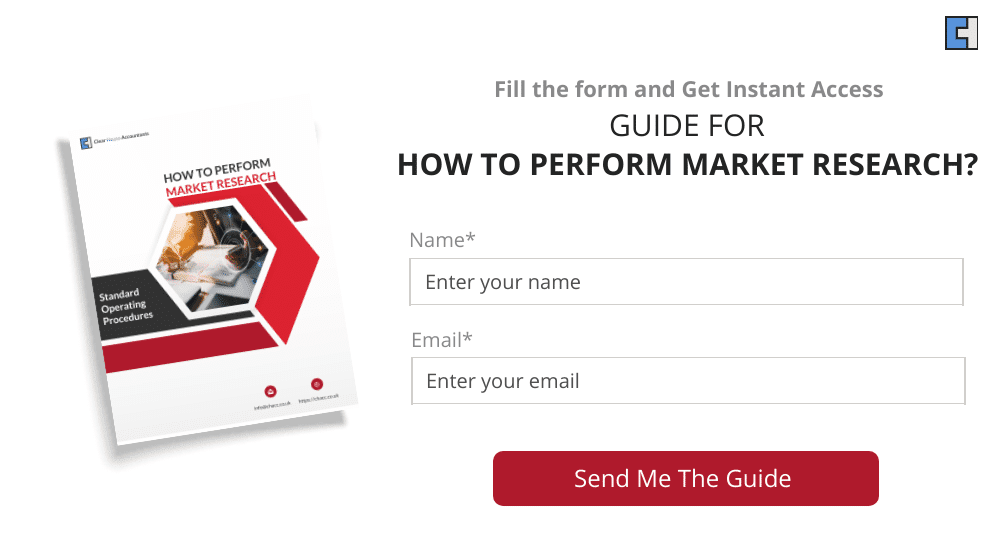
You can rely on existing industry information when conducting research. Yet, it might not work in your favour as your products and services may vary from what others are offering in the industry. In such circumstances, you can conduct your own market research by speaking with target customers, conducting a survey, or interviewing focus groups. You must also conduct a competitive analysis of the marketing strategies to assess the industry space to ensure your business runs smoothly.
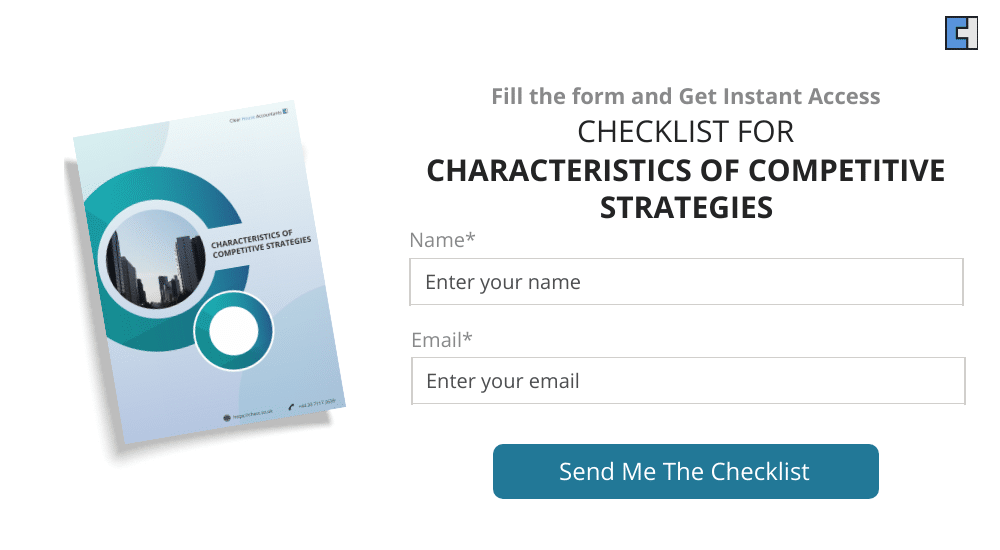
Write a Business Plan
A great business plan is a strategic representation of your new business idea. It outlines the key objectives that business owners want to achieve with the start of the new business. Principally, a business plan includes financial, marketing, and operational aspects to keep your business ahead of others in the industry. This plan is designed to help you onboard stakeholders, angel investors, and partners.
Fortunately, the following guides were created by expert accountants in London to walk you through each stage and phase of your business plan when setting up a business in the UK:

Choose the Right Business Structure
One of the most important aspects in a business plan when starting a business in the UK is to decide on the optimal legal business structure. Selecting the right business structure will determine how you fulfil certain obligations, such as registering with HMRC, paying taxes and digital reporting.
There are four main types of business structures in the UK, each with its own operational rules and tax liabilities:
- Sole Traders
- Partnerships
- Limited Liability Partnership (LLP)
- Limited Company
The following guide extensively discusses the four business structures in the UK:
Choose a Business Name
Choosing a business name is another vital step to follow when understanding how to start a business in the UK. Notably, since your business name will be the identity and brand of your business activities,
- It should be unique.
- It must not contain any offensive/ derogatory words.
- Should bear no similarities to any other registered business name.
- Should be in accordance with the guidelines set by the UK government.
Select a Business Location
Having a specific business address is essential for executing your core business operations. Choosing a location with the best resources and the maximum target audience can help your business yield optimal results quickly. Notably, you can run your business from a physical location or an online platform, such as from the comfort of your own home.
When running your business in an office space (like a rented property), you should consider the following factors:
- Health and safety standards are followed to ensure your employees’ well-being.
- Provision of clean toilets.
- Access to clean drinking water.
If you are running your business from home, consider the tax allowances you can claim to reduce your tax bill, such as internet, lighting, and phone lines. Similarly, when operating via an online platform, an engaging and user-friendly website is crucial. If you have the skills, you can build it yourself. Alternatively, hiring a professional web designer can serve the purpose.
Do the Budgeting and Feasibility Study
When understanding the steps on how to open a business in the UK, working out the costs involved is an undeniably significant step.
Notably, calculating start-up costs in advance helps you estimate profits, secure a business loan, and attract investors to boost investment in your business. While start-up costs for each business will be different based on the business structure, the following are some general costs you should consider:
- Registering your company with Companies House:
- HMRC Tax-related costs
- Insurance-related costs
- Staff costs
- Rental costs and council tax
- Office space expenses, including utility bills, internet, equipment, and maintenance.
- Website maintenance cost.
- Accountancy and legal fees
- Customer services
- Marketing and advertising
The following guides discuss the fundamentals of business budgeting and management of business finances for you to see budgeting from a wider perspective:
Develop Marketing and Branding Strategy
Whether you run a product- or service-based business, an engaging audience is a must to turn into returning customers. Your business should be accessible to everyone looking for the specific product or service you offer. You can start by building a striking and impactful identity for your business, followed by targeted advertising and marketing efforts.
A well-crafted marketing plan includes the approaches you may take to attract your target audience. It is where your market research and potential client base studies will help you build a strategy that must evolve and change to fit the needs of the business and its stages.
Previously, the marketing team of a business used to make arduous efforts in order to expand their audience reach and promote their products and services. For instance, a customer-friendly website and social media marketing (such as ads) have long been a robust tool in carrying out marketing activities to target a specific demographic.
However, with the advent of AI, the marketing strategies have now been revolutionised in their entirety. With the help of AI bots, marketers can automate their routine tasks, such as personalising content and customer experiences, creating impactful visuals, and analysing consumer data. Consequently, what used to take hours before can now be done in just a matter of minutes. Hence, it is utterly important that startups now adapt to the evolving marketing trends and harness the power of AI to provide customised and highly relevant marketing content to their customers, thereby propelling their business.
You can develop an impressive marketing plan by learning the marketing goals, industry, market analysis, and financial projection:
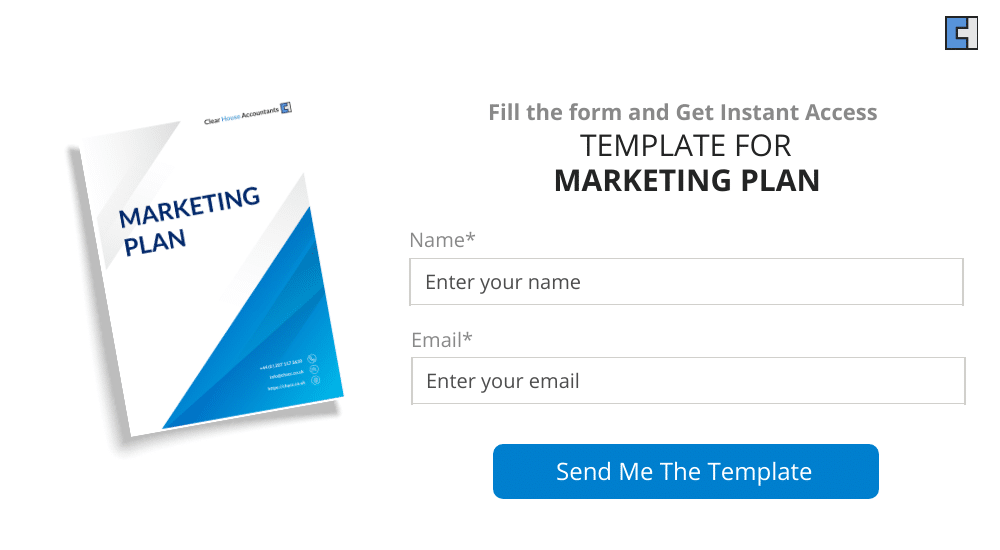
Have an Insurance Plan To Ensure Business Continuity
In addition to achieving success, it is equally important to ensure that your business trajectory stays stable and permanent. Regardless of the size of your business, you may encounter unforeseen challenges over time. That is where a contingency plan should always be in the picture.
There are different insurance plans that you might be required to implement in line with your business nature.
It is important to choose an insurance plan that will best serve your goals when setting up a business in the UK:
You may also adopt a liability insurance plan that will provide you with sufficient coverage against any legal costs and compensation claims made by third parties. Notably, the most common type of liability insurance is Employers’ Liability (EL) insurance, which is legally required for employers. Alternatively, an insurance broker can be your middleman, guiding you through the dos and don’ts of insurance planning.
Obtain Legal Documentation for a New Business
When learning the steps on how to start a business in the UK, you must be aware of the legal documentation (i.e., licenses and permits) that are necessary to fulfil legal requirements and operate a business. There are many businesses where you will need to obtain legal permits, such as:
- Child Care Services.
- Financial and Credit Services.
- Pet Services.
- Piercing services.
- Goods haulage (HGV).
- Import and export.
- Security Services.
- Sports services.
- Taxi driver.
Get Business Advice From an Expert
When you set up a business in the UK, you can typically register as either a sole trader, a limited company, or a partnership. Whichever option you choose, it is a good idea to get business advice from an expert start-up accountant.
There are several reasons for needing an expert accountant to start on the correct foundations:
Having an expert on board will help you cover all bases of the target market, venture capital, and comprehensively fulfil your annual tax and reporting obligations, ensuring compliance. Learn why hiring an accountant can help in your business growth while saving money and time:
Consider the Funding Options for Your Business
Starting a business is the easy part; keeping it running is what’s hard. A business requires a steady source of funds to run. Accordingly, you need to be very clear from day one about where the business will get its funds. You might have savings, or take out a business loan, or there might be angel investors who want to help you with the finances. Nonetheless, after estimating the initial costs to run the business, you should start collecting the required funds to have a strong foundation.
You can learn more about the sources you can use to secure the funds for your business, and different funding types:
Register Your Startup
Now that you have your company plan set up and your funds ready, you are prepared to take the next step towards a successful startup: registering your business or company with the UK government. Notably, different legal structures in the UK have other registration requirements that you must meet as a self-employed individual, partner, or limited company.
Open a Business Bank Account
When starting a business in the UK and registering it, it is crucial to keep your personal and business finances separate. You can do that by opening one or more business bank accounts. You can easily manage your business transactions with this account without mixing up important information. The clear transactions will help you later when you have to report your annual accounts to the concerned authorities. What’s more, a business bank account gives off a professional image of your business to your clients.
There are multiple benefits of opening a digital business bank account over a traditional one. Learn what they are:
Consider if You Need To Hire Staff
By following the steps mentioned above, you are now ready to implement the business idea in reality. You will now start trading and serving the target audience.
But the question here is, how? Are you working on your own, or do you need staff to handle various roles within the company? Being a freelancer or sole trader does not mean that they do not need to hire employees to work for them. Even if you are a sole trader, you might need one or two heads to manage the sales smoothly.
Similarly, as per your business needs, you must contemplate whether to hire agency workers, freelancers, or full-time employees.
Now, there are a few factors to consider before you start hiring staff, like:
- Estimate the hiring budget.
- The total headcount you may need to hire.
- Target the skills you need.
- The market rate of the skills you require.
- How will you retain employees?
The following guides can help you with different aspects of hiring staff:
Keep the Business Accounting Streamlined
It doesn’t end once a business is set up; it is time to work on streamlining your business accounting. Preparing statutory accounts, tax planning and filing, effective bookkeeping, and payroll management are integral parts of accounting. Having access to specialist certified accounting services, you can grow and manage your startup successfully.
With effective bookkeeping, you can record, organise, and track your business’s routine financial transactions. Bookkeeping is an essential foundation for preparing financial statements, completing and filing tax returns, and ensuring the accuracy of financial data for effective decision-making. Find out more about effective bookkeeping strategies:
Have a Business Exit Strategy in Place
It may seem unnecessary to think of an exit strategy when starting a small business in the UK. Yet, having a business exit strategy in place is a crucial component of any business plan, ensuring long-term growth. It will enable better objective setting and effective conversations with investors. Thus, with an exit strategy in place, your business can run smoothly rather than ending it at a loss.
Start Strong by Using a Lean Start-Up Business Model
The lean start-up business model is all about finding new ideas in the quickest and most efficient way. It refers to bringing that service or product to market using techniques that eliminate redundant processes.
The main principles of Lean Business Start-up are:
Managed Use of Resources
Try to use resources in the most efficient way to showcase the product in front of customers.
Most Viable Product:
The process involves trying out every possible iteration of an idea to produce the most viable product. This procedure is also known as the development of a Minimum Viable Product (MVP).
In the end, it is all about learning from these failures and giving your start-up a chance to refine its processes, thereby developing the start-up as quickly as possible.
Conclusion
Overall, understanding and implementing all the crucial steps for starting a new business can be both an exciting and challenging experience. There are several fundamental processes involved in starting your own business in the UK, including deciding on a business structure, registering it, fulfilling the legal requirements, hiring staff, and considering the associated costs, Luckily, turning to a professional startup accountant can significantly reduce your stress when learning how to set up a business and fulfil all the compliance obligations that come with it.

















